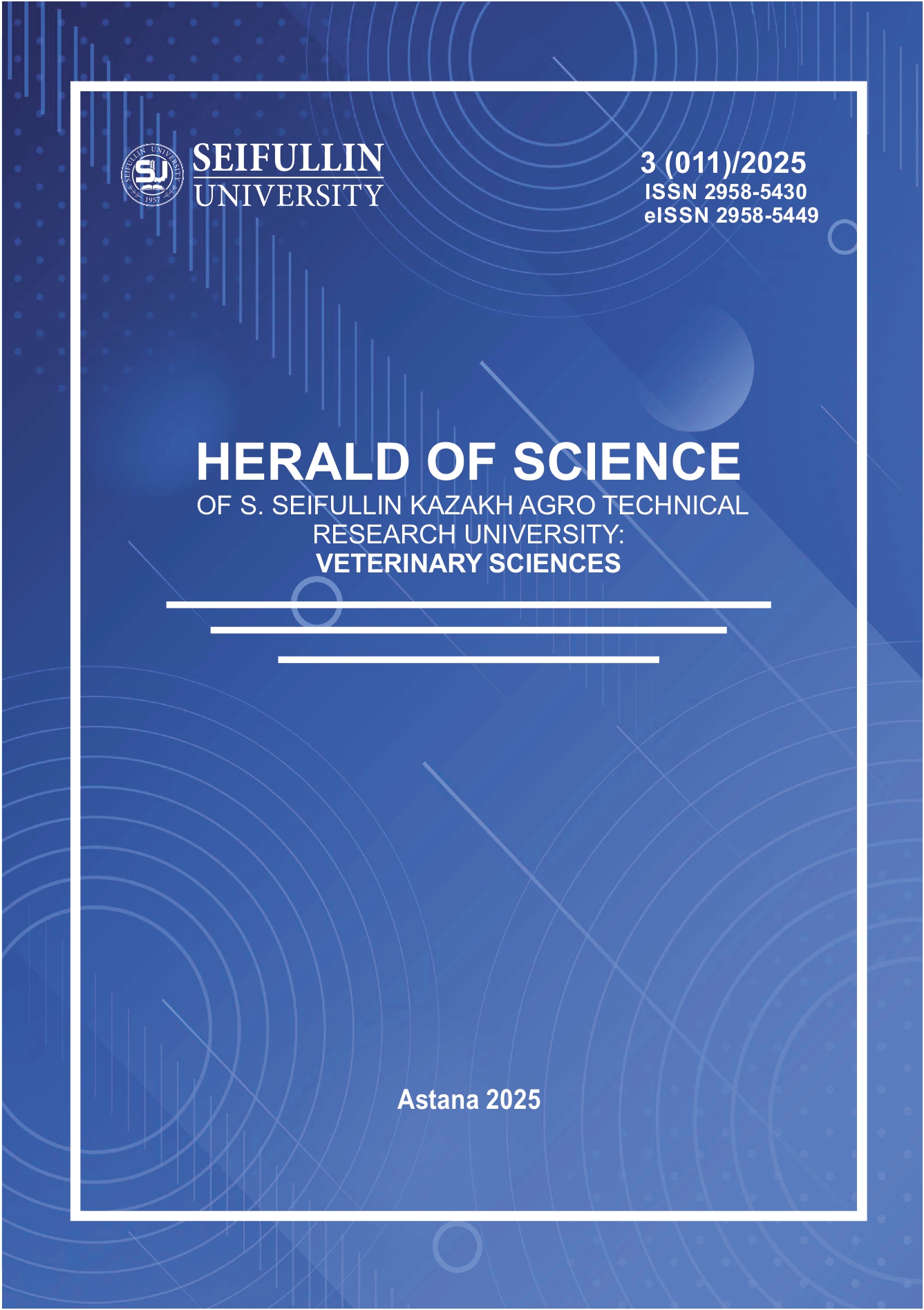Intestinal Helminth Infections in Small Ruminants: Prevalence in Northern Kazakhstan and a New Treatment Scheme
DOI:
https://doi.org/10.51452/kazatuvc.2025.3(011).1981Keywords:
Northern Kazakhstan; sheep; intestinal helminths; prevalence; infestation intensity; treatment regimen; efficacy.Abstract
Background and Aim. Gastrointestinal helminth infections significantly reduce ruminant productivity. This study aimed to determine the prevalence and assess the efficacy of a new treatment regimen against sheep intestinal cestodes and nematodes in Northern Kazakhstan.
Materials and Methods. In 2024, to identify the species and infestation level of parasites, the digestive tracts of 29 sheep, aged 5-9 months, were examined by helminthological dissection, and 200 faecal samples were analysed using the Fülleborn and McMaster methods at two farms in the Tayinsha District. To test the treatment scheme, two groups (control and experimental) were formed, each containing 15 sheep. All animals had mixed infection with strongyles and Moniezia spp. Initially, each sheep was treated with Alvet (Nita-Farm, Russia) at the recommended dosage. Additionally, each sheep in the experimental group received 3 g of the phytobiotic Sangrovit Extra (Phytobiotics Futterzusatzstoffe, Germany) daily for 8 weeks. The treatment efficacy was measured on days 30, 60, 90, and 120 after deworming to assess the prevalence and infestation intensity of helminths.
Results. Parasitological research showed that 93.1% of sheep were infected with Trichostrongylidae spp., Moniezia expansa, Trichuris ovis and Skrjabinema ovis. Mixed infestations of 2 to 4 species were found in 68.8% of the sheep. The infection rates of Moniezia spp. and strongyles were 13.3% and 26.7%, respectively, 4 months after deworming in the experimental group. In comparison, these rates were 3.5 and 2.5 times lower, respectively, than in the control group.
Conclusion. Using Sangrovit Extra effectively inhibited small ruminant intestinal helminth infestation.

